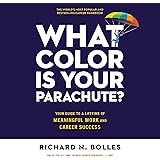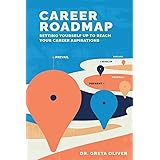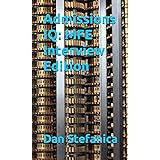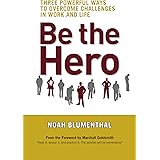Have you ever wondered what truly sets apart a successful job interview from an average one? Beyond reciting your qualifications, there’s a powerful undercurrent of psychology at play. The video above sheds light on some foundational principles for mastering this crucial interaction. Furthermore, understanding the nuances of human connection and perception can significantly elevate your performance and help you confidently secure your next role.
Indeed, a job interview is not merely a question-and-answer session; it is a complex social interaction where trust, rapport, and perceived fit are paramount. Aspiring candidates often focus solely on articulating their skills, yet the psychological dimension of an interview is equally, if not more, influential. This guide will delve deeper into the strategies discussed, offering practical insights to help you leverage the hidden psychology to nail an interview.
Mastering Rapport: The Art of Pacing and Mirroring for Interview Success
One of the most compelling psychological techniques highlighted in the video is “mirroring or pacing.” This strategy, backed by studies conducted with sales psychologist Dr. Donald Moin, suggests that persuasive individuals subtly emulate the communication style and body language of those they are interacting with. Consequently, in a job interview setting, this means adjusting your speech rate, energy level, and even subtle gestures to align with the interviewer’s.
For instance, if your interviewer speaks at a rapid pace, your responses should reflect a similar tempo, indicating an energetic and engaged demeanor. Conversely, if their speech is measured and deliberate, slowing your own cadence can convey thoughtfulness and a compatible working style. The underlying message sent through this subtle synchronization is, “This person is like me,” thereby fostering a sense of familiarity and trust. Establishing this subconscious connection can significantly enhance how a hiring manager perceives your personality and potential cultural fit within their organization, making you a more relatable and trusted candidate.
Beyond verbal cues, mirroring extends to non-verbal communication. Observing and gently reflecting an interviewer’s posture, hand gestures, or even their head nods can create a powerful, albeit unconscious, bond. However, it is crucial to employ these techniques subtly and authentically to avoid appearing disingenuous or mimicking. The goal is to create a harmonious interaction, not a direct imitation, which ultimately helps you build immediate rapport and make a strong, positive impression during your job interview.
Beyond the Script: The Strategic Advantage of Active Listening in Interviews
The video astutely points out the profound benefit of active listening during an interview. Many candidates mistakenly focus on rehearsing their next answer, rather than truly absorbing what the interviewer is communicating. This common oversight can lead to generic responses that fail to address the specific nuances of the interviewer’s questions or concerns. Effectively, active listening is a cornerstone of powerful communication and a critical skill for anyone looking to nail an interview.
When you genuinely listen, you not only grasp the explicit question but also discern the underlying intent and priorities of the hiring manager. This deeper understanding enables you to craft tailored responses that directly address their needs and demonstrate your attentiveness. Therefore, practicing active listening involves making eye contact, providing verbal affirmations like “I understand” or “That’s an excellent point,” and asking clarifying questions to ensure complete comprehension. Such engagement signals professionalism, strong communication skills, and a genuine interest in the role and the company, which are highly valued attributes in any professional setting.
By shifting your focus from internal monologue to external reception, you gain valuable insights into the interviewer’s perspective. This allows you to pivot your answers strategically, highlighting experiences and skills most pertinent to their unspoken requirements. Furthermore, it prevents you from interrupting or misinterpreting questions, which can be detrimental to your overall interview performance. Ultimately, active listening transforms the interview from a one-sided interrogation into a dynamic, engaging conversation, fostering a more positive and productive interaction.
The Hiring Manager’s Blueprint: Answering the Two Core Questions
A pivotal insight from the discussion reveals that hiring managers, beneath all their specific questions, are essentially seeking answers to two fundamental queries. These questions serve as the ultimate litmus test for any applicant and understanding them is crucial for interview success. By proactively addressing these concerns, candidates can strategically frame their responses to resonate deeply with decision-makers.
Can This Person Do the Job? Demonstrating Knowledge, Skills, and Abilities
The first core question is straightforward: “Can this person do the job?” This pertains directly to an applicant’s technical capabilities, relevant experience, and foundational knowledge. Interviewers assess whether you possess the necessary hard skills, certifications, and previous work experience that align with the role’s requirements. Your resume and portfolio typically provide a preliminary answer to this, but the interview provides an opportunity to elaborate with specific examples.
Consequently, your responses should clearly articulate how your past accomplishments directly translate to the responsibilities outlined in the job description. Quantifiable achievements, specific projects, and the tools or methodologies you’ve mastered should be highlighted. For instance, instead of merely stating you have “project management experience,” detail a project where you successfully led a team, delivered results ahead of schedule, or significantly reduced costs. By illustrating your capabilities with concrete evidence, you provide compelling proof that you possess the expertise to excel in the position and contribute meaningfully from day one.
Will This Person Do the Job? Uncovering Drive, Character, and Persistence
The second, and often more challenging, question is: “Will this person do the job?” This delves into an applicant’s motivation, character traits, energy, and overall professional disposition. Interviewers are looking for evidence of persistence, leadership qualities, strong communication skills, a proactive attitude, and a genuine drive to succeed. These are often revealed through behavioral interview questions and your narrative about past roles.
Your work history is a powerful predictor of future performance, showcasing your motivations and character traits. Therefore, when discussing past roles, focus not just on *what* you did, but *how* you did it and *why*. For example, describe instances where you overcame challenges, took initiative beyond your prescribed duties, collaborated effectively with a team, or demonstrated resilience in the face of setbacks. These anecdotes provide valuable insights into your work ethic, problem-solving abilities, and commitment, reassuring interviewers that you possess the intrinsic qualities necessary to not only perform the tasks but to thrive and contribute positively to the team culture.
Elevating Your Interview Presence with Psychological Preparedness
Integrating these psychological insights into your interview preparation can significantly enhance your overall presence and impact. Rather than memorizing canned answers, focus on understanding the underlying dynamics of the conversation. Practice actively listening to questions, identifying the core intent, and then formulating responses that demonstrate both your capabilities and your desirable character traits. This holistic approach ensures you are not just answering questions, but strategically building a case for your candidacy.
By mindfully applying pacing and mirroring, you foster immediate rapport and a sense of shared understanding. By truly listening, you tailor your message to resonate with the interviewer’s specific needs. And by consciously addressing the “Can you do the job?” and “Will you do the job?” questions, you present a comprehensive and compelling picture of your value. Consequently, mastering these psychological elements allows you to move beyond superficial interactions, forge genuine connections, and ultimately position yourself as the ideal candidate to nail an interview.









